
Asian Kung-Fu Generation is a Japanese alternative rock band formed in Yokohama in 1996. For its entire career, the band has consisted of vocalist Masafumi Gotoh, guitarist Kensuke Kita, bassist Takahiro Yamada, and drummer Kiyoshi Ijichi. Starting out as a college band, Asian Kung-Fu Generation released a series of independent EPs featuring lyrics mostly sung in English. In 2002, they released their major-label EP debut Hōkai Amplifier, from that point singing their lyrics in Japanese. The band's musical style is influenced by seminal Western alternative rock acts as well as their own local Japanese indie-rock and punk scene. Their songs incorporate various aspects of the genres, most typically expressing fast tempos and prominent power chord guitar riffs in addition to rhythmic groove and emotional lyrics. Despite the indie nature of their music, the band has enjoyed worldwide commercial success in addition to critical acclaim. Asian Kung-Fu Generation has been cited as one of the best, most balanced modern rock bands to emerge from Japan in the 2000s.

Kimi Tsunagi Five M is the first studio album by Japanese rock band Asian Kung-Fu Generation and their second major-label release overall, released on November 19, 2003 on Kioon Music. The album's name is sometimes given as "Kunkei Five M," but the reading "Kimitsunagi" is given in katakana on the original compact disc. Peaking at number five on the Oricon charts, the LP retained two successful singles, "Mirai no Kakera" and "Kimi to Iu Hana, and has gone on to sell over 250,000 copies. The album is also featured in a live studio recording which is included as a bonus DVD from the limited edition of future compilation, Best Hit AKG.

Sol-fa is the second studio album by Japanese rock band Asian Kung-Fu Generation, released on October 20, 2004.

Special Others is a Japanese band that blends improvised jazz with post-rock influences. Their lyrics on non-instrumental songs mix English and Japanese. The members of the band met in high school and formed the group in 1995. They began performing in 2000 and their first major release, Indy-Ann, remained in the CRJ-tokyo charts for seven weeks.

Masafumi Gotoh or Gotch is the lead vocalist, main songwriter and rhythm guitarist of the Japanese rock band Asian Kung-Fu Generation. Masafumi met fellow band members Kensuke Kita and Takahiro Yamada while attending a music club of Kanto Gakuin University. The three formed Asian Kung-Fu Generation in 1996, with drummer Kiyoshi Ijichi joining the band shortly after. As the main songwriter of the band, Gotoh is credited with writing a majority of their lyrics, but has a strong tendency to share songwriting duties equally among his bandmates. His vocal style most often alternates between soft, melodic singing, and harder, harsher, yelling. Masafumi has a degree in economics and his favourite artists include Weezer, Number Girl, Oasis, Teenage Fanclub, and Beck. He produces records for other artists such as Chatmonchy, Dr. Downer and The Chef Cooks Me. He was also one of the founding members of the band Skeletons (スケルトンズ).

Caramelman and Asian Kung-Fu Generation is an early EP album by Japanese rock band Asian Kung-Fu Generation, released during their indie days. The mini-album was a joint-work with Caramelman and composed almost entirely in English lyrics. The fourth track, "Aono Uta," was later re-recorded and included within the band's major-label debut EP, Hōkai Amplifier.
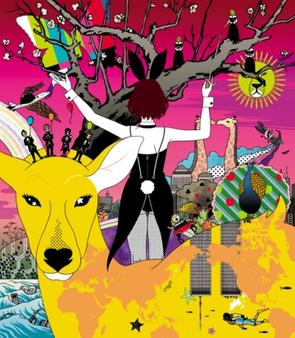
World World World is the fourth studio album by Japanese rock band Asian Kung-Fu Generation, released on March 5, 2008.

Mada Minu Ashita ni is the second major-label EP by Japanese rock band Asian Kung-Fu Generation, released on June 11, 2008. The mini-album features songs conceived around the time of the recording of their preceding full-length album, World World World.

"Kimi to Iu Hana" is a song by Japanese rock band Asian Kung-Fu Generation. It was released as the second single of their major-label debut album, Kimi Tsunagi Five M, on October 16, 2003. The song's b-side, "Rocket No.4," was later included on the band's 2006 anniversary compilation, Feedback File. "Kimi to Iu Hana" was ranked at 3rd on fans request for band's 10th anniversary live setlist on September 14, 2013.

"Mirai no Kakera" is a song by Japanese rock band Asian Kung-Fu Generation. It was released as the first single of their major-label debut album, Kimi Tsunagi Five M, on August 6, 2003. In 2020, this song was used for promotional anime video for horse race event, 65th Arima Kinen, with original characters then became anime Fanfare of Adolescence. The song's b-side, "Entrance," was later included on the band's 2006 compilation, Feedback File.

"Rewrite" is a song by Japanese rock band Asian Kung-Fu Generation. It was released as the third single of their second full-length studio album, Sol-fa, on August 4, 2004. In 2016, they re-recorded Rewrite along with all songs from Sol-fa and released on November 30, 2016.

"After Dark" is a song by Japanese Indie rock band Asian Kung-Fu Generation. It was released as the second single of their fifth studio album, World World World, on November 7, 2007, nearly a whole year after the release of the album's lead single. The single debuted in the top ten on the Oricon charts and was selected to be used as the seventh opening theme of the anime series Bleach.
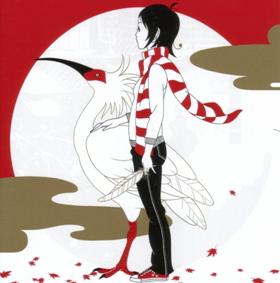
"Kimi no Machi Made" is a song by Japanese rock band Asian Kung-Fu Generation. It was released as the fourth and final single of their second full-length studio album, Sol-fa, on September 23, 2004.
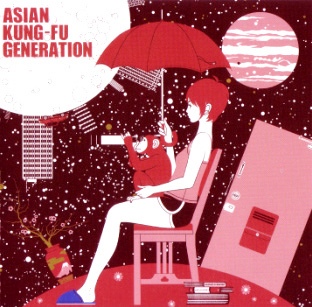
"World Apart" is a song by Japanese rock band Asian Kung-Fu Generation. It was released as the second single of their third studio album, Fanclub, on February 15, 2006. The song is unique for a number of reasons. Not only was it the first single AKG released following their tenth anniversary, it also became their first number-one single, debuting at the top of the Oricon charts. The song's b-side, "Uso to Wonderland," was also the first recording in which Kensuke Kita held the position of lead singer.

"Korogaru Iwa, Kimi ni Asa ga Furu" is a song by Japanese rock band Asian Kung-Fu Generation. It was released as the third and last single of their fifth studio album, World World World, on February 6, 2008. The song was first introduced late 2007 during a live, onstage performance in Korea while the band was on its Project Beef tour. The song was ranked 8th on fans request for band's 10th anniversary live setlist on September 14, 2013.

"Solanin" is a song by Japanese rock band, Asian Kung-Fu Generation. It was released as a single on March 31, 2010. The song was written for the film of the same name. The music was composed by band member Masafumi Gotoh, while the lyrics was written by Inio Asano, creator of the manga of the same name that the film is based on. Asian Kung-Fu Generation's recording was not used in the film. Instead, a cover, credited to Rotti, a fictional band from the film, with vocals by Aoi Miyazaki, who plays Meiko in the film, was used.
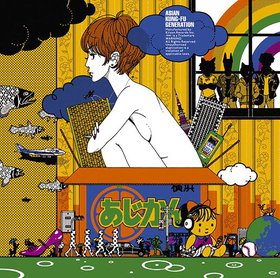
"Maigoinu to Ame no Beat" is the 15th single of Japanese rock band Asian Kung-Fu Generation from their album Magic Disk. The single was released on May 26, 2010. The first track is the main theme for the anime "Yojō-Han Shinwa Taikei", which features character design from Yusuke Nakamura, the same artist who illustrates their CD covers. Maigoinu to Ame no Beat is also their first song to feature brass instruments.

Best Hit AKG is a compilation album by the Japanese rock band Asian Kung-Fu Generation, released on January 18, 2012.
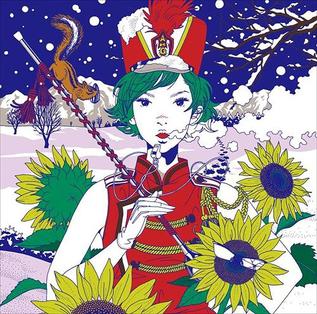
"Marching Band" is the 16th single of Japanese rock band Asian Kung-Fu Generation for their first best-of album Best Hit AKG. The single was released on November 30, 2011. The song "N2" is also featured on the album Landmark.

"Sore dewa, Mata Ashita") is a song by Japanese rock band Asian Kung-Fu Generation. It was released on July 25, 2012 and reached number 11 on the Oricon charts. It was used as the theme song for Road to Ninja: Naruto the Movie and one of the 3 songs by Asian Kung-Fu Generation used in Naruto media, alongside "Haruka Kanata" and "Blood Circulator." The song was ranked 9th on fans request for the band's 10th anniversary live setlist on September 14, 2013.




















